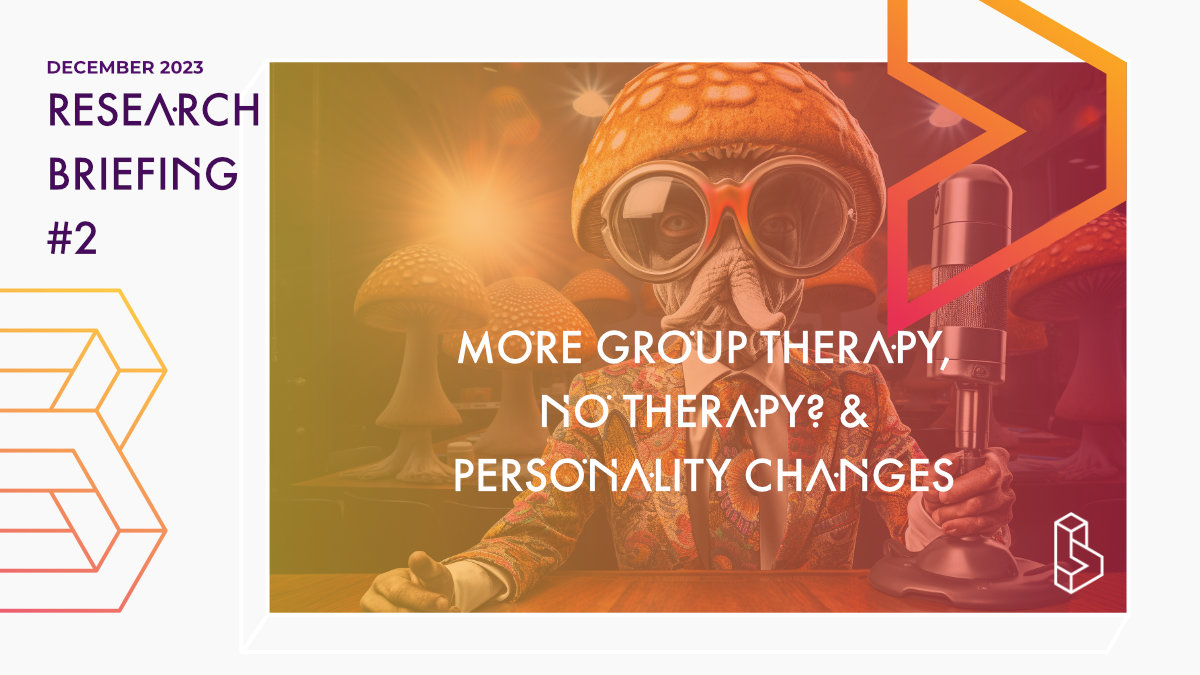My weekly recap and analysis of three of the latest psychedelic papers published last week.
Exploring the Acceptability and Efficacy of Psilocybin-Assisted Group Therapy in Cancer Patients with Depression
The recent qualitative and quantitative analyses of psilocybin-assisted group therapy, involving patients with cancer and major depressive disorder (MDD), have provided valuable insights into the feasibility, safety, and potential cost-effectiveness of this novel therapeutic approach. These papers not only align with the broader economic analysis highlighted last week, emphasizing the cost savings of group therapy models in psychedelic-assisted therapies (PAT), but also offer a deeper understanding of patient experiences and clinical outcomes.
The quantitative evidence from a Phase II open-label trial involving 30 cancer patients. This trial assessed the efficacy of a single 25mg dose of psilocybin administered in group settings, with individual and group therapeutic support. The results were promising, with no serious adverse events reported and a significant reduction in depression severity observed by week 8. Remarkably, 80% of participants demonstrated a sustained response to the treatment, and 50% achieved full remission of depressive symptoms by week 1, sustained over eight weeks.
The qualitative analysis delved into the acceptability of psilocybin-assisted group therapy among 28 (of the 30) cancer patients with MDD. Through semi-structured interviews, participants expressed a generally positive view of the group therapy format, citing increased feelings of safety, preparedness, connection, and belonging. Key factors influencing this acceptability included the importance of the therapeutic framework, the complementary nature of individual sessions, and considerations regarding group size and interaction structure. This study highlights the potential of group settings in enhancing the therapeutic experience, fostering a sense of community, and facilitating deeper engagement with the treatment process.
The integration of group and individual therapy sessions in these studies appears to be a key factor in their success. The group sessions provided a shared space for mutual support and collective experience, essential for building a sense of community and belonging. Meanwhile, individual sessions allowed for personalized attention and deeper processing of the psychedelic experience. This dual approach effectively combined the benefits of group dynamics with the intimacy and focus of one-on-one interactions.
Treatment with Psychedelics as Psychotherapy: A Holistic Perspective
Continue reading about the other highlighted studies by becoming a paying member.
Become a psychedelic insider
Get a Pro Membership to enjoy these benefits & support Blossom📈 full reports on Topics & Compounds
🧵 full summary reviews of research papers
🚀 full access to new articles
See Memberships

